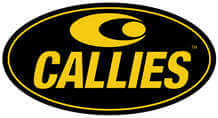
MS Access As A Dev Tool
Access continues to be a highly efficient tool for business database development.
The Best Microsoft Access Database Solutions owner, consultant, and principal programmer is Alison Balter - a recognized expert Microsoft Access consultant. Alison is the author of 15 Microsoft Access training books and 200+ training videos. She is a frequent guest speaker at MS Access conferences and has developed hundreds of applications for businesses of all types.
We know your business data is important; we listen to your concerns, ask questions, and gather information from all stake holders. We discuss your needs and requirements for your database. We find out what you want, why you need various features so we can obtain as much information as possible. Once we have the information we need, we work with you to design the proper database architecture, plus the dashboards, the questions (queries), forms, and reports you need for an excellent database system.

We also create websites designed for speed to display your data accurately, using ASP.NET technology. Fast, secure, and robust, our ASP.NET web sites and web applications give you true business tool for finding and displaying information dynamically on the web.






Access continues to be a highly efficient tool for business database development.

How to create a Microsoft Access application with some unique tips and tricks.

Your Access developer near me has some great info for you about using Access efficiently.
Call MS Access Solutions at (323) 285-0939 For Complimentary Consultation
Named Parameters: Eliminate the Need to Count Commas
In all the examples you've seen so far, the parameters of a procedure have been supplied positionally. Named parameters allow you to supply parameters without regard for their position, which is particularly useful in procedures that receive optional parameters. Take a look at this example: strName = ReturnInit3("Bill",,"Gates")Because the second parameter isn't supplied, and the parameters are passed positionally, a comma must be used as a placemarker for the optional parameter. This requirement can become unwieldy when you're dealing with several optional parameters. The following example greatly simplifies the process of passing the parameters and also better documents what's happening:
strName = ReturnInit3(strFName:= "Bill",strLName:= "Gates")As shown in the following example, when you pass parameters by name, the order that the parameters appear doesn't even matter:
strName = ReturnInit3(strLName:= "Gates",strFName:="Bill")This call to the ReturnInit3 function yields the same results as the call to the function in the previous example.
NOTE
When you use named parameters, each parameter name must be exactly the same as the name of the parameter in the function being called. Besides requiring intimate knowledge of the function being called, this method of specifying parameters has one important disadvantage: If the author of the function modifies a parameter's name, all routines that use the named parameter will fail when calling the function.This material orginally appeared in Alison Balter's book Mastering Microsoft Office Access 2007 Development. Reprinted here by author's permission.
When you need a Microsoft Access programmer for your Roanoke Virginia business, call MS Access Solutions at (323) 285-0939. We have over 25 years experience in Microsoft Access programmer solutions. We create Access database applications for all sectors, consisting of hospitals, government agencies, the U.S. military, universities, agriculture, workers services, and insurance provider. We can take care of the most advanced as well as complicated Access and also SQL Server database programming for your business as well as smaller projects, like fixing damaged Access database forms, MS Access reports, Access macros, and VBA code.
Access programmer cities we serve: Access Programmers Richmond Virginia

